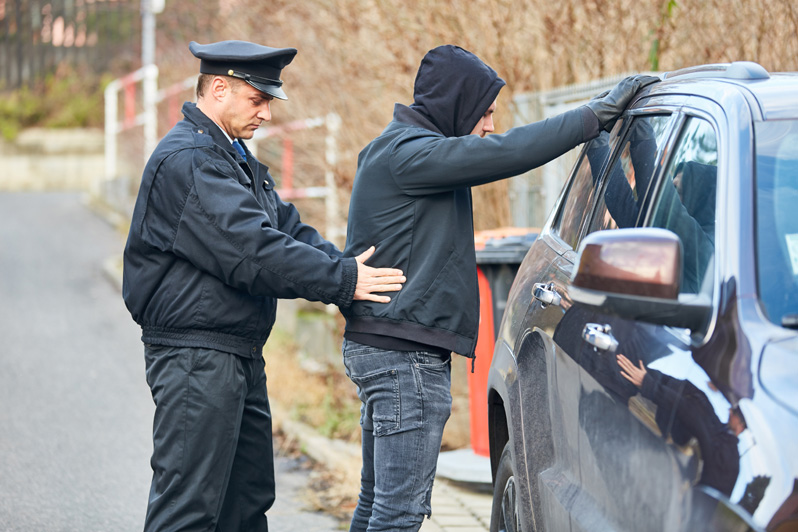

Probable cause allows Louisiana police officers to search local vehicles for dangerous substances without a warrant. However, officers do not have blanket permission to break into your car and rifle through your belongings. While you have less privacy in your vehicle than you do in your home, you can still challenge an officer’s warrantless search with help from an experienced attorney.
Eric G. Johnson of John D. & Eric G. Johnson Law Firm recognizes that officers often conduct warrantless searches to get ahead of vehicular destruction, but this may still infringe your rights. If you need help defending your rights from Louisiana police, you can call Attorney Johnson for support today.
Unlawful Search and Seizure vs. a Warrantless Search
Police officers cannot pick and choose people off the street to accuse of criminal misconduct. The Fourth Amendment prevents officers from engaging in illegal search and seizure practices. Officers who attempt to search your vehicle or person without probable cause can face disciplinary action that invalidates any evidence of illegal conduct they may otherwise find.
With this being said, there are still certain circumstances that may allow a police officer to search your car without a warrant, including plain sight clauses. If an officer claims they have the right to search your car, we recommend that you reach out to a criminal defense attorney.
Calling an attorney is not the same thing as admitting to a crime. Rather, working with an attorney allows you to protect yourself from intimidation attempts or officers’ attempts to coerce information out of you.
What Are Exceptions That Allow for a Warrantless Search?
Generally, police officers must have a warrant to search a person’s vehicle, home, or person. However, vehicles have significantly less privacy allotted to them than a person’s home. If you give an officer consent, even accidentally, they can search the full contents of your car. Some officers even have the right to go beyond a consented search if they spot paraphernalia in plain sight.
Searches Based on Reasonable Suspicion
In a similar vein, officers have the right to search the property of someone they’ve arrested. If you’re facing charges for illegal activity, you may not have the right to stop officers from going through your car or other personal belongings. People under investigation may have their homes or properties searched with little warning, too.
Likewise, Louisiana residents on probation may find themselves victims of spot checks, as may anyone attempting to cross into international waters. All of these searches fall under the protection of a concept known as “reasonable suspicion.” Reasonable suspicion, as a concept, allows officers to act when they have enough evidence to suggest that someone in the vicinity intends to engage in illegal activities.
The Connection Between Warrantless Searches and Consent
As mentioned, some officers will attempt to coerce you into giving them consent to search your belongings. This is why you should be incredibly careful when having a conversation with police officers. An officer intent on getting into your car may twist your words to make it appear as though you’ve given them consent to search your belongings, even when you never intended to give them permission to do so.
We recommend that you minimize your conversation with an attending police officer until you have a criminal defense attorney on the scene. Our team can step in on your behalf so officers can’t willfully misinterpret your conversation.
Know Your Rights in the Face of a Warrantless Search
There are circumstances that allow police officers to search your case without a warrant, including reasonable suspicion and the repossession of your vehicle. However, officers do not have blanket permission to break into your car. If an officer tries to search your car without a warrant or otherwise coerce you into giving consent, let a criminal defense attorney know immediately.
John D. & Eric G. Johnson Law Firm stands up for Louisiana residents who’ve failed to get the respect they deserve from local police. If you need legal support, call our team at (318) 377-1555 or contact us online.
